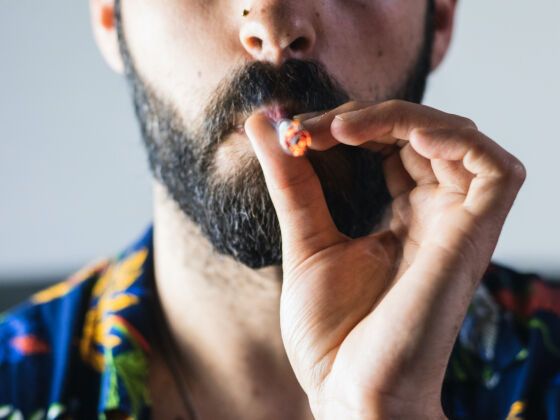Earlier this week, Uruguay voted to legalize and regulate the sale and distribution of marijuana. This made Uruguay the first country to go this far (a few other countries have decriminalized the drug, like the Netherlands and, oh hey, fucking North Korea, which has been voted the “Worst Place in the World to Have the Munchies” for 30 years running, but none of these countries have gone so far as straight up legalization and regulation).

Why America Needs to Follow Uruguay's Lead and End the War on Drugs
While the American states of Colorado and Washington voted to legalize recreational pot possession and use last year, at the federal level the US has yet to follow suit on the whole, “Hey, the Drug War sucks, let’s try something else” thing.
But we’re getting closer: Just a few months ago, Gallup polls found for the first time that the majority of Americans are in favor of the legalization of pot, and after the passage of the Colorado and Washington measures, the federal government indicated they would not attempt to block the implementation of the laws. It’s a sign that things are moving in the right direction.
But if you’re not yet among the believers, here are some reasons that the United States should follow Uruguay’s example and end the prohibition on marijuana:
The War on Drugs has failed.
We haven’t ended drug use or abuse through the War on Drugs, and that alone, after 40 years of enforcement, should be reason enough. Seriously, there’s nothing else to say: If a policy doesn’t work, we shouldn’t continue implementing, and paying for, that policy. Even the United States Drug Czar has admitted that the Drug War is a failure, and it’s his job to make sure it’s not.
Drug use and abuse hasn’t substantially dropped off in the past two decades, and the ass-backwards approach of reducing the supply while there’s still plenty of demand only has one effect: the price of the drug increases, and the incentive of selling along with it.
The cost of the war is huge.
The War on Drugs costs the United States around $51 billion annually, which is a lot of money to be spending on something that doesn’t work. There is money to be made selling drugs, and if legitimate businesspeople who are being regulated by a governmental authority can’t get to the product, then less scrupulous sorts will: Drug cartels and gangs in Mexico and Central America have been enriched by the drug war, and they have left countless innocent lives in their wake — 90,000 in Mexico alone since 2006.
As a side note, there are a few groups of legitimate businesspeople who are making a ton of money off the War on Drugs. Among them are those leading the private prison industry, which has spent millions lobbying for pro-Drug War politicians and “Three Strikes” laws, which make small-time nonviolent drug offenders much more likely to get nailed with a tough prison sentence.
The War on Drugs is racist.
Minimum sentences in the United States were, until 2010, 100 times more severe when the drug in question was crack-cocaine than they were when the drug was cocaine. In 2010, the ratio was reduced so that crack-cocaine sentences were ‘only’ 18 times more severe.
The issue? They’re basically the same drug. The only difference is that cocaine is a drug primarily used by white people (ahem, Congressmen), while crack-cocaine is primarily used by African Americans. We can argue all we want about whether the intent of these laws was racist, but what we know for sure is that the end result is racist: Tons of African Americans end up in prison.
In fact, two-thirds of those incarcerated for drug-related offenses in the US are Black or Hispanic, even though those two groups comprise less than a third of the total population together, and even though Caucasians use drugs at basically the same rate. We’re effectively destroying minority communities, and all in the name of a war that is, for the millionth time, a failure.
The criminalization of drugs is arbitrary.
I could understand the War on Drugs a little bit better if all drugs were outlawed except in medical cases. I would oppose it even more, because my drug of choice is Glenfiddich’s 18-year-old Single Malt Scotch Whisky, but I would at least understand it better.
Alcohol is not prohibited, though. We learned our lesson with alcohol prohibition 80 years ago. But then we apparently thought what had gone absolutely horribly for booze would go well for other drugs, and have not yet caught on that the result is effectively the same: We haven’t ended drug use, and we’ve destroyed countless lives in the process. Marijuana is, if anything, less harmful than tobacco or alcohol, so why is pot outlawed while these other drugs aren’t?
None of this is to suggest that pot legalization (and hopefully, an eventual decriminalization of other drugs and an end to the war) would solve all of the country’s drug problems. But, as a retired police chief explained, by taking treatment of drug abuse out of the criminal justice system and putting it into the hands of public health professionals, we’d be saving lives, saving ourselves money, and freeing up our police to focus on actual violent criminals.